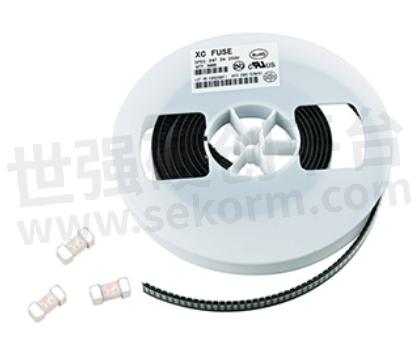There are several general classifications of thermistors

There are several general classifications of thermistors:
A. Classified by temperature variation characteristics - positive temperature coefficient (PTC), negative positive temperature coefficient thermistors.
B. Classified by sensitivity to temperature changes - high sensitivity type (mutation type), low sensitivity type (slow change type) thermistors.
C. Classified by heating method - direct heating thermistors, side heating thermistors.
D. Classified by structure and shape - various types of thermistors such as circular (sheet), cylindrical (cylindrical), circular (gasket), etc.
The most common names for thermistors are PTC thermistors and NTC thermistors. So what is the difference between these two types of thermistors?
1、 PTC thermistor
PTC thermistor structure - made from materials such as barium titanate (BaTiO3), strontium (Sr), zirconium (Zr), etc.
PTC thermistor characteristics - the resistance value is directly proportional to the temperature change, that is, the resistance value increases as the temperature increases. At room temperature, its resistance value is small, only a few ohms to a few tens of ohms; When the current flowing through it eXCeeds the rated value, its resistance value can quickly increase to hundreds to thousands of ohms or more within a few seconds.
PTC thermistor function and application - widely used in the demagnetization circuit of color televisions, the starting circuit of refrigerator compressors, and circuits for overheating or overcurrent protection. It can also be used in small household appliances such as electric mosquito repellents and curlers, electric heating pads, and heaters.

Fig.1
- +1 Like
- Add to Favorites
Recommend
- What Is The Difference between Resettable Fuses and Traditional Fuses?
- Littelfuse Adds 3425L Series SMD Resettable PPTCs Series Created for High-Voltage Applications
- The Working Principle and Application Precautions of PPTC?
- The Operating Principle of Self Recovering Fuse PPTC in USB Protection
- Principle of Action of Resettable Fuse
- Principle of Resettable Current Fuses
- Yint Developed CBR- series PPTC Thermistors which can Solve the Problem of Abnormal State Protection of Electronic Ballasts
- YINT Resettable PTCS Offers 30V,60V,72V and 250V Series that are Used in Equipment with Frequent Abnormal Over-current Flowing Areas
This document is provided by Sekorm Platform for VIP exclusive service. The copyright is owned by Sekorm. Without authorization, any medias, websites or individual are not allowed to reprint. When authorizing the reprint, the link of www.sekorm.com must be indicated.





























































































































































































































































































































































































































































































































































































































































































































































































































































































